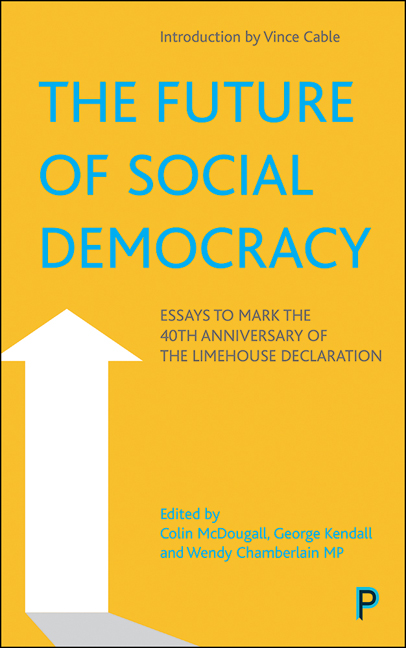Book contents
- Frontmatter
- Dedication
- Contents
- Notes on the authors
- Foreword
- Introduction: what are the priorities for social democrats?
- One After the failed alternative vote referendum, how can electoral reform have a future?
- Two How could a government actually deliver more housing?
- Three How will technology change the future of work?
- Four Can better public ownership promote efficiency and social justice?
- Five How do we grow the economy without damaging the environment?
- Six How can global free trade work for everyone?
- Seven Towards a social democratic foreign policy?
- Eight How do we deliver social justice through education?
- Nine What is the Social Democrat Group?
- Index
Four - Can better public ownership promote efficiency and social justice?
Published online by Cambridge University Press: 05 January 2022
- Frontmatter
- Dedication
- Contents
- Notes on the authors
- Foreword
- Introduction: what are the priorities for social democrats?
- One After the failed alternative vote referendum, how can electoral reform have a future?
- Two How could a government actually deliver more housing?
- Three How will technology change the future of work?
- Four Can better public ownership promote efficiency and social justice?
- Five How do we grow the economy without damaging the environment?
- Six How can global free trade work for everyone?
- Seven Towards a social democratic foreign policy?
- Eight How do we deliver social justice through education?
- Nine What is the Social Democrat Group?
- Index
Summary
At the December 2019 general election, Labour stood on a manifesto of extensive renationalisation and state intervention in the economy. There had been nothing like it since 1983, when Gerald Kaufman memorably described the party's manifesto as ‘the longest suicide note in history’. The Corbyn leadership had successfully brought back public ownership as a central plank in Labour's platform.
In so doing, they reopened one of the most divisive ideological questions in Labour history. The old Clause IV part 4 of Labour's 1918 Constitution defined the aims and objects of the party as the ‘common ownership of the means of production, distribution and exchange’. In practice, this commitment proved to be far more rhetorical and symbolic than a statement of how the party saw its central mission. Yet, it remained emblazoned on the party's membership card.
Its critics, both inside and outside the party, had for decades objected that this relic of 1918 completely misrepresented how a social democratic party should see its relationship with the private sector and the market economy. Tony Blair's 1995 reform of Clause IV was a crucial act of social democratic revisionism, at long last liberating the party, in the language of the time, to come to terms with modernity. A quarter of a century later, the Corbyn leadership were determined to turn the clock back.
In the very particular political context of the 2019 general election, Labour's renewed commitment to public ownership passed by with relatively little notice. Yet, for most of the party's history, this had been the crucial ideological battleground between, on the one hand, Labour pragmatists, revisionists and modernisers and, on the other, self-styled socialist transformationists. This chapter will first remind readers of the history of this long struggle. It will put the British debate in the context of the ideological development of European social democracy. It will then review the respective record of nationalisation and privatisation in Britain's post-Second World War history and discuss what might have changed in recent times to call for a rethink of the lessons of the past. Finally, it will consider what we presently know of where Keir Starmer stands on these issues.
- Type
- Chapter
- Information
- The Future of Social DemocracyEssays to Mark the 40th Anniversary of the Limehouse Declaration, pp. 45 - 72Publisher: Bristol University PressPrint publication year: 2021

